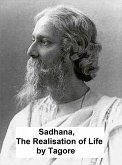From The Essays of Aruthur Schopenhauer translated by T. Bailey Saunders. Essays include On Authorship, On Style, On the Study of Latin, On Men of Letters, On Thinking for Oneself, On Criticism, On Reputation, and On GeniusAccording to Wikipedia: "Arthur Schopenhauer (February 22, 1788 - September 21, 1860) was a German philosopher known for his atheistic pessimism and philosophical clarity. At age 25, he published his doctoral dissertation, On the Fourfold Root of the Principle of Sufficient Reason, which examined the fundamental question of whether reason alone can unlock answers about the world. Schopenhauer's most influential work, The World as Will and Representation, emphasized the role of man's basic motivation, which Schopenhauer called "will". Schopenhauer's analysis of "will" led him to the conclusion that emotional, physical, and sexual desires can never be fulfilled. Consequently, Schopenhauer favored a lifestyle of negating human desires, similar to the teachings of Buddhism. Schopenhauer's metaphysical analysis of "will", his views on human motivation and desire, and his aphoristic writing style influenced many well-known philosophers, including Friedrich Nietzsche, Richard Wagner, Ludwig Wittgenstein, and Sigmund Freud."
Dieser Download kann aus rechtlichen Gründen nur mit Rechnungsadresse in A, B, BG, CY, CZ, D, DK, EW, E, FIN, F, GR, H, IRL, I, LT, L, LR, M, NL, PL, P, R, S, SLO, SK ausgeliefert werden.









